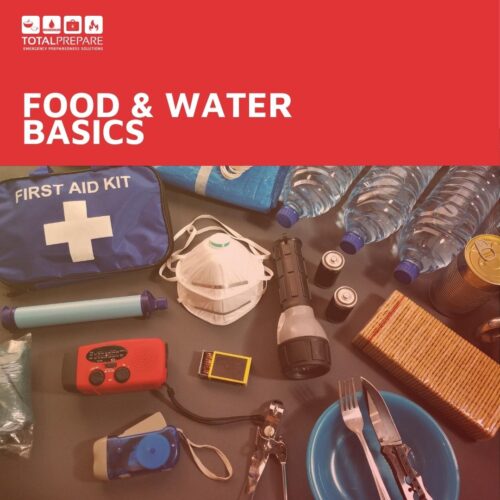Food & Water Basics
In any emergency situation, having sufficient food and water is essential to maintaining the health and energy levels of your team. This section outlines the basic requirements for food and water during a crisis, including daily calorie intake and hydration needs. By understanding these needs and storing the right supplies, you can help ensure your employees remain nourished and hydrated, even under challenging conditions.
Food Requirements
In an emergency, each person requires a certain number of calories to maintain energy levels and overall health. The general recommendation for daily food intake during an emergency is:
Calories: Approximately 2,000 to 2,500 calories per person per day. This varies depending on activity level, age, and health, but 2,000 calories is the standard minimum for an average adult.
Food Types: It is important to store nutrient-dense, non-perishable foods that provide a balance of carbohydrates, protein, fats, and essential vitamins. These can include canned goods, freeze-dried meals, energy bars, and dried fruits and nuts.

Water Requirements
Water is crucial for hydration, and the general recommendation for water intake in an emergency situation is:
Water: At least 1 gallon (approximately 4 liters) per person per day. This covers drinking water as well as water for sanitation and hygiene. In extreme conditions (hot weather, physical exertion), more water may be needed.
Special Considerations: Young children, elderly individuals, and people with health conditions may need more water. Additionally, if the emergency leads to high physical activity (evacuation, rescue efforts), water consumption should be increased.
Additional Considerations
Storage: Ensure proper storage conditions for food and water to prevent spoilage and contamination.
Supplemental Needs: In situations of extreme weather or activity, consider additional electrolytes or hydration solutions to replenish salts and minerals.
These guidelines help ensure your organization is prepared with sufficient food and water during an emergency, maintaining basic health and functionality for everyone involved.


